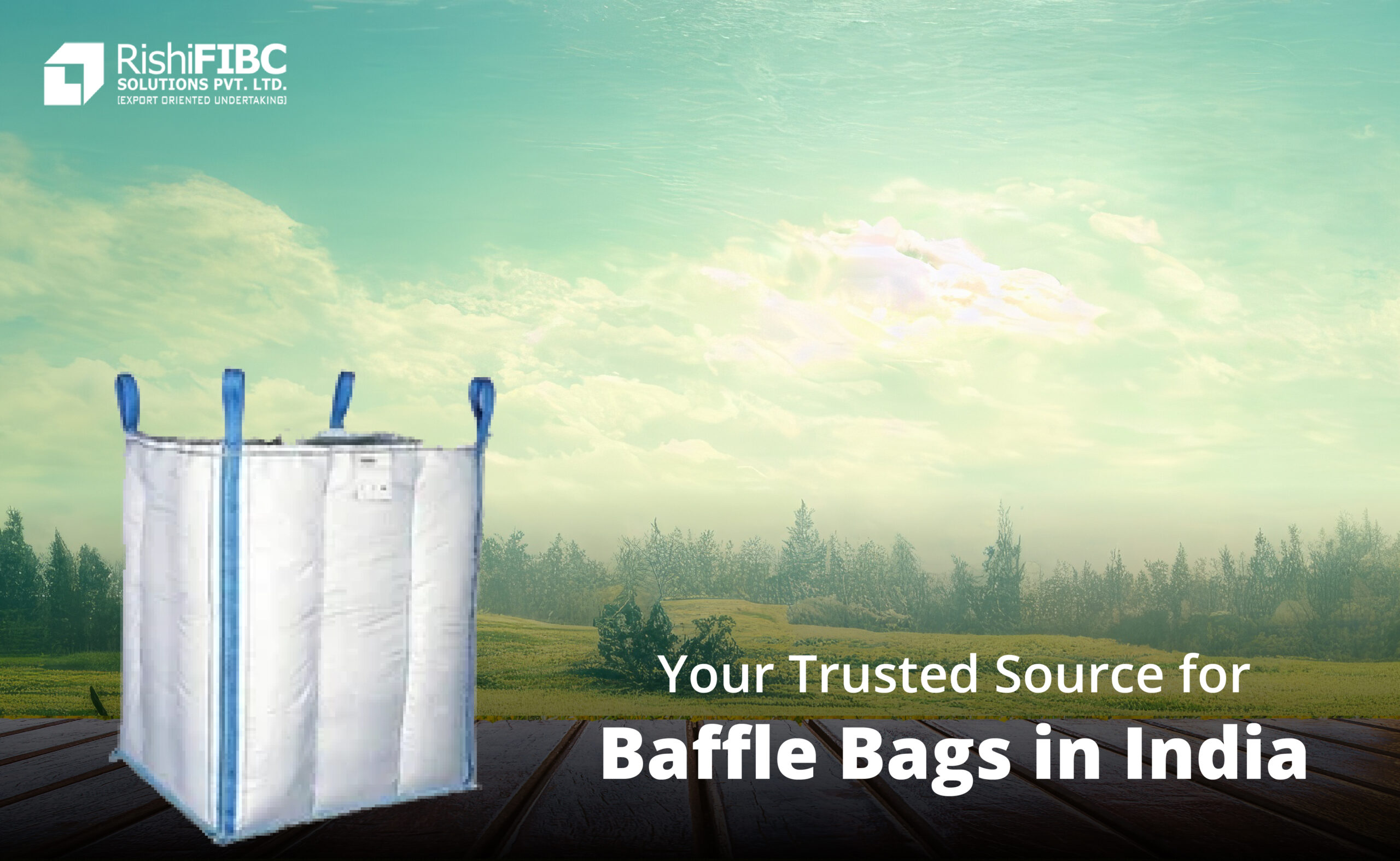India’s Leading Baffle Bags Manufacturer – Rishi FIBC
Importance of efficiency and safety when working with bulk materials should be the top-most priority. Baffle bags, also known as Q bags or pillow bags are a popular choice for their ability to optimize storage space and product handling. However, to ensure the longevity of your bags and prioritize workplace safety, following proper best practices and safety protocols is essential.
This guide delves into essential aspects of baffle bag usage, from selection and storage to filling, handling, and disposal. By implementing these recommendations, you can maximize the effectiveness of your baffle bags while minimizing risks in your work environment.
Selecting the Right Baffle Bags for the Job
The first step towards safe and efficient baffle bag use is choosing the appropriate bag for your specific application. Here are some key factors to consider:
- Material Compatibility: Ensure the baffle bag material is compatible with the product you’ll be storing. Rishi FIBC offers baffle bags in various woven polypropylene (PP) resins and treatments to handle different materials effectively.
- Safe Working Load (SWL): The SWL indicates the maximum weight the baffle bag can safely hold. Don’t exceed this limit to prevent bag failure and potential injuries. Rishi FIBC bulk bags come in various SWL capacities to suit diverse applications.
- Size and Capacity: Choose a baffle bag size that accommodates your product volume comfortably. Overfilling can cause bag instability and tearing. Rishi FIBC offers these bags in a range of sizes to meet your specific storage requirements.
- Food-Grade Requirements: If storing food-grade materials, opt for certified food-grade baffle bags to ensure product safety and compliance with regulations. Rishi FIBC provides food-grade bags that adhere to stringent hygiene standards.
Safe Storage and Handling Practices
Once you’ve selected the ideal baffle bags, proper storage and handling are crucial for maintaining their integrity and preventing accidents. Here are some key practices to follow:
- Storage:
- Store empty baffle bags in a clean, dry, and well-ventilated area and always away from direct sunlight and harsh chemicals.
- Stack empty bags carefully, following weight limitations to avoid damage to lower bags.
- Don’t store filled bags on top of each other, as this can cause strain on the lower bags. Utilize pallets or designated racking systems for optimal storage.
- Handling:
- Use designated lifting equipment, such as forklifts or hoists with appropriate slings, to handle filled baffle bags.
- Ensure lifting straps are securely attached to the designated lifting loops on the baffle bag.
- Never lift a baffle bag by a single loop or by the bag itself, as this can cause tearing.
- Inspect these bags for any cuts, tears, or weaknesses before use. Damaged bags should be discarded or repaired by a qualified professional.
Filling and Discharging Baffle Bags Safely
Filling and discharging these bags require careful attention to safety protocols. Here’s what to consider:
- Filling:
- Use designated filling equipment that is compatible with the baffle bag’s SWL and size.
- Fill the baffle bag evenly to prevent lopsided weight distribution, which can lead to tipping.
- Don’t overfill the baffle bag. Leave enough space at the top to allow for secure closure.
- Discharging:
- Utilize appropriate discharge equipment and techniques designed for baffle bags.
- Ensure the bag is stable and properly secured before discharging the contents.
- Stand clear of the discharge area to avoid product spills or bag movement.
Disposal Considerations
When baffle bags reach the end of their usable life, proper disposal is essential. Here are some recommended practices:
- Check for local regulations: Disposal guidelines may vary depending on your location. Research and adhere to any local regulations regarding baffle bag disposal.
- Recycle or Reuse: When possible, opt for recycling programs that accept used baffle bags. Rishi FIBC may be able to advise on such programs in your area.
- Safe Landfill Disposal: If recycling is not an option, ensure the baffle bag is disposed of in a designated landfill that accepts industrial waste.
Conclusion
By following these best practices and safety protocols, you can expect the safe and efficient use of baffle bags in your operations. Rishi FIBC is committed to providing high-quality baffle bags and expert guidance to our customers. Contact our team today to your specific baffle bag needs and receive personalized recommendations.





